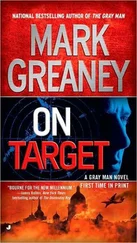Ri was the nation’s newly installed foreign intelligence chief, which meant there was no reason he would necessarily know every visitor to Residence No. 55—that would be a job for the Ministry of State Security, the domestic arm of North Korean intelligence—but with every generalship in the Korean People’s Army came the responsibility of deft political relationship-making. Ri knew the important people in this town, in this government.
But he didn’t know this little man.
As he walked he tilted his head toward an aide, who spoke without being spoken to, because he knew what his general wanted.
Softly he said, “Hwang Min-ho. Installed last week as the new director of Korea Natural Resources Trading.”
Ri nodded, as though he already knew this. He had heard the name, and he knew of the appointment. Ri had also heard of the order to have Hwang’s boss snatched from his house in his bedclothes and helicoptered up to a reeducation camp, and he imagined that bastard would be dead inside six weeks.
Reeducation complete, he thought to himself as he walked on.
The general wondered about this Hwang. “I want his file. Contact MSS. Generate a reason.” His voice echoed off the wooden flooring, and Hwang might have heard him had the footfalls of a dozen men and women not echoed along with it.
—
Afew minutes later Ri had left the last vestiges of his entourage behind, and now he sat alone in a gilded office. He knew Choi had a dozen of these offices at a dozen palaces in the country, and he’d been to many meetings in this and other similar rooms, but never had he been left by himself in one.
This was strange.
He did not know why he had been summoned here today and then sequestered from his aides. Perhaps it was a formality, a way to welcome him into his new position at the Reconnaissance General Bureau, although that didn’t seem plausible. If that had been the case, surely there would be attendants and transcriptionists and photographers galore ready to witness the event.
So this was something else. But what? Ri had served in the military intelligence field for more than a quarter-century already, and he was a brilliant man, but at the moment he couldn’t come up with a scenario that made sense.
Although the man he would soon have an audience with held the power of life and death over every civilian in the nation, he wasn’t worried about himself in the least. He knew that if Choi wanted him dead, he wouldn’t be meeting with him personally.
Those things happened by proxy, as Ri Tae-jin was painfully well aware.
—
Lieutenant General Ri had received exactly two orders from the office of the Supreme Leader in the one week he had been in charge of the RGB. The first order was that Ri carry out the arrest of his predecessor. This he did reluctantly; he had worked with General Gang for more than a decade and quite liked the old man.
Gang’s “crime” was the recent failure of a long-range ballistic missile test. ICBMs like the one that had exploded over the ocean were the responsibility of the Korean People’s Army Missile Guidance Bureau, and General Gang’s Reconnaissance General Bureau wasn’t directly involved in making missiles fly. Several directors at MGB were arrested, but RGB was implicated as well, because a long-standing RGB plan to steal guidance software from a French aerospace company via a hacking operation had recently failed. Choi lumped that failure together with the unsuccessful missile test, and he ordered the directors of both the MGB and the RGB hauled out of their offices in disgrace.
The second message from Choi came down to Ri later that same day. It was a short, direct missive ordering Ri to put General Gang to death within twenty-four hours to pay for his disgrace.
At the bottom of the page, one additional word had been added to the order.
The word specified the manner of the execution.
Dogs.
Ri had sat alone in his office for fifteen minutes, stunned and sickened, with the order held loosely in his fingertips, until a ringing phone brought him back to life. It was a senior minister from Choi’s office—his words carried the weight of the Dae Wonsu—asking if the order had been understood.
There was no problem there; Ri understood the order perfectly. His old mentor was to be fed to a pack of seven starving dogs that were maintained at Chongjin labor camp for just such a purpose. He confirmed to the minister the order would be followed with utmost haste.
But there was something else . The minister directed Ri himself to monitor the execution in order to ensure it was carried out to the letter of the instructions.
Ri said he understood and would comply, but he knew the real reason he would have to travel to Chongjin and watch his friend and mentor die a horrific death before his eyes. He was being forced to watch the event because as the new director, his cooperation was to be encouraged, and the best way for that, Choi and his ministers had decided, was by him learning in detail what would happen to him if he failed in his duties.
It took a tremendous amount of horror to impress the new director of the North Korean foreign intelligence service, but since the day of his director’s death by the gnashing teeth of seven dogs a week earlier, Lieutenant General Ri Tae-jin had had a recurring nightmare of the event. In his dream he was never the one in the pit, although that could easily be the reality if Choi lost confidence in his ability to execute the duties of his office. Instead, he was a witness to the execution.
His nightmare was virtually the same as the actual event.
As he sat in the gilded ceremonial office Ri’s mind drifted to the dog pit, and then it moved to one further horror. It became known at the RGB soon after Gang’s death that his family had been executed as well. His wife, his three adult children, and their wives and even their small children had all been taken to Chongjin and shot in the dead of night. No criminal complaint had been read to them, no explanation at all for why they had to die.
Ri had trouble pushing his impure thoughts about his society out of his head, but they cleared quickly when a group of transcriptionists, generals, bodyguards, and then finally the Dae Wonsu himself entered. Choi carried a snifter of Cognac in one hand and a handkerchief in the other. He wore his black Mao suit; Ri had seen him in nothing else save for a uniform he sometimes wore for purely military events. Ri also saw that Choi’s eyes were typically active, flashing around the room, both on the general in front of him and at random objects. Choi looked at a clock, a container of water, a painting of his father on the wall.
Without preamble he said, “You had no involvement over the failed operation to obtain the guidance software from France.”
Ri did not know if it was a question or a statement. He shook his head. “None, Dae Wonsu. I was not involved in our cyber-operations at all.”
Choi seemed to know this already. “General Gang’s failures do not cast a shadow over you. You have my full confidence.”
Ri bowed four times and thanked his Supreme Leader, who seemed content to watch him bow. Then Choi said, “Missile Guidance Bureau must do better, but General Gang had an opportunity to provide them with assistance, and he failed.”
Ri knew what was good for him. He agreed in a full-throated manner.
Choi then looked at his drink and said, “My burden is this . . . like my father, and my grandfather, I am a keen expert on matters of history.”
“This is well known by all, Dae Wonsu.”
“Nothing has struck me more than what has happened in Ukraine, in Libya, in Iraq. When these nations parted with their most potent weapons, they were not rewarded with good relations. No, they became nonentities, lambs.”
Читать дальше












